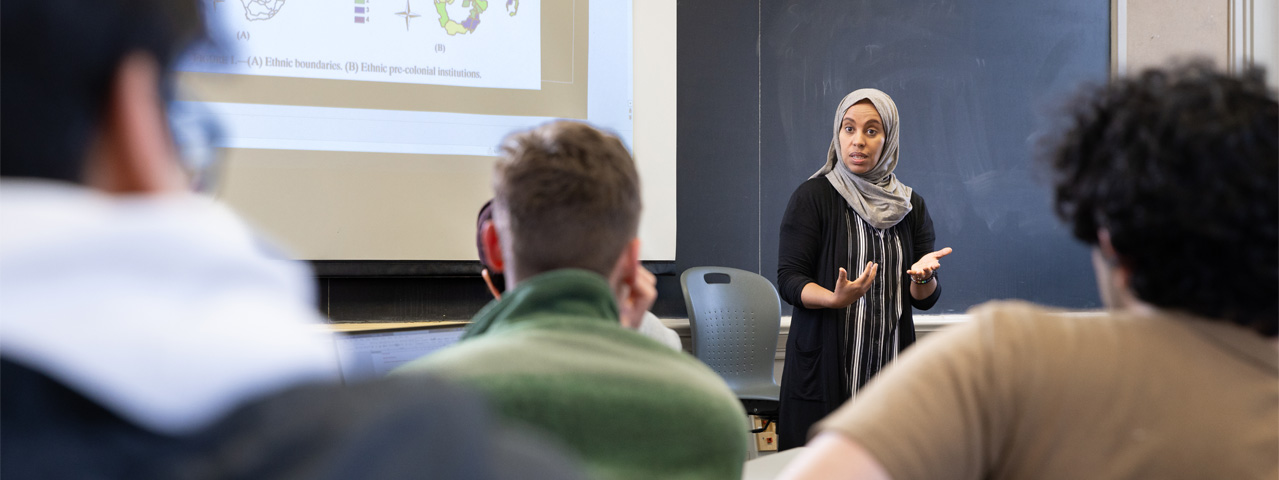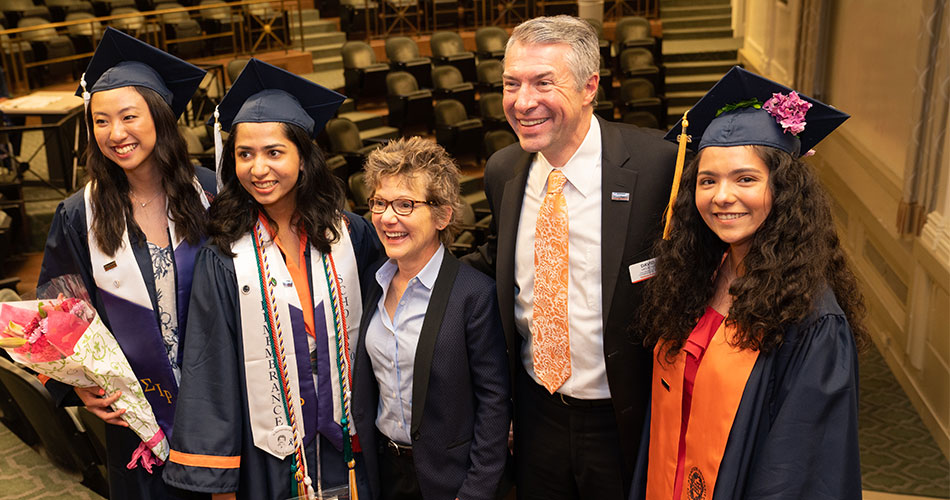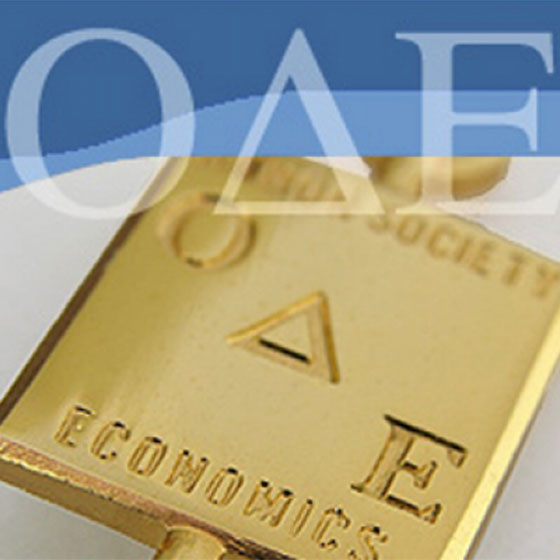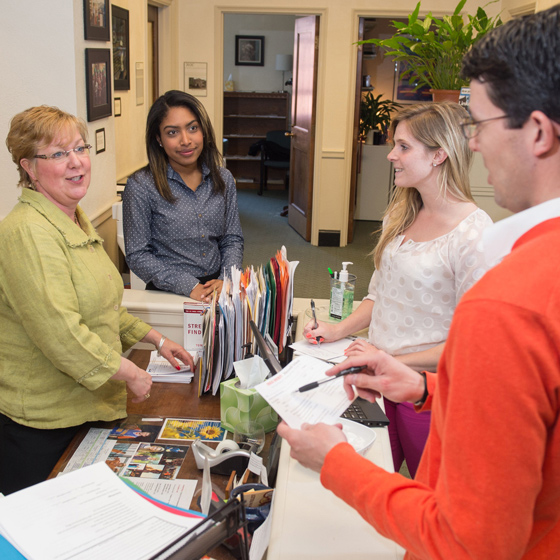Informed Choices. Better Outcomes.
Economics Undergraduate Studies

B.A. in Economics
B.A. students explore intersecting factors that affect policy and market outcomes. What resources are available? What are the best ways to use them? And what will it take for people make certain choices? With an emphasis on applied economics, students tackle with relevant, real-world problems. Students train for careers that value evidence-based decision-making.
B.S. in Economics
The STEM-designated B.S. program builds statistical and mathematical skills necessary to work as a professional economist or pursue graduate work in economics. Learn more about combining the B.S. with a master of arts degree in economics, which can be completed in one additional year. Up to four courses, including two of the B.S. required courses, can be counted towards both the bachelor’s and the master’s degrees.
Minor in Economics
A minor in economics will introduce you the basic concepts of economics and how they are used to analyze areas of international trade, economic behavior, healthcare, taxation, and more. The minor program requires six courses (18 credits). Students will take two Principles of Economics courses and four upper-division economics courses.

Honors Distinction in Economics
This program is designed to support undergraduate students who want to conduct original, high-quality research in economics. Students who complete this rigorous program and maintain a 3.4 grade point average will be recognized with this distinction on their transcript.
JoAnn Heffernan Heisen Award
This competitive award recognizes an outstanding graduating senior in economics and is based on a nomination letter, academic performance, a writing sample and, if relevant, participation in an economics research project such as a class project,
internship, honors thesis or independent study.
Conduct Meaningful Research
As a Maxwell undergraduate student, you will conduct original research as a required element of your degree program. Students have additional opportunities to conduct research, including participation in the following:
- Renée Crown Honors Program
- Economics Honors Distinction Program
- Young Research Fellows Program, provided by The SOURCE
- Assist faculty or serve as a student worker at a Maxwell or Syracuse University research center.
- Share your work with your peers and professors at Maxwell's annual Celebration of Undergraduate Scholarship.


Omicron Delta Epsilon
Outstanding economics majors are invited to become lifetime members in the Omicron Delta Epsilon (O.D.E.) International Honor Society. The society exists to form a community of economists across countries. Membership is based on scholarly achievement and is recognized worldwide.
Majors with junior or senior standing with a GPA of 3.3 or higher are eligible for O.D.E. if they have successfully completed ECN 301 (or ECN 311) and ECN 302, and at least two upper division ECN courses (except ECN 301, 302, 311, 365 or 470).
Eligible students are encouraged to contact the department if they have any questions about O.D.E.'s selection process.
Career Resources
Maxwell students have access to many career tools and resources, including Syracuse University’s exclusive online job and internship portal, alumni directories, networking treks and skill-building resources needed to apply for jobs or graduate school. As you start thinking about your post-graduation goals, career advisors are available—in person, via drop-in virtual appointment, and via text—to help translate your academic work into professional opportunities. You will quickly discover the many ways a liberal arts education can open new pathways to your future.
